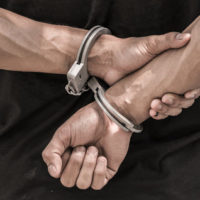How Does Maryland Differentiate Between Various Assault Crimes?

The crime of assault in Maryland come into play when a perpetrator violates the personal safety or bodily integrity of a victim. It is also possible for verbal threats to rise to the level of an assault crime, especially if the victim fears imminent danger. That being said, there are several different types of assault crimes under Maryland law.
Second-Degree Misdemeanor Assault
The definition of second-degree misdemeanor assault appears in Maryland Code of Criminal Law Section 3-203. Under Maryland law, the term assault includes the crimes of assault, battery, as well as assault and battery. Essentially, state law prohibits unwanted physical contact and credible threats of imminent physical harm.
Any person who violates Section 3-203 is guilty of second-degree misdemeanor assault. Upon conviction, the offender may face imprisonment for up to 10 years and criminal fines up to $2,500.
Second-Degree Felony Assault
The definition of second-degree felony assault also appears in Section 3-203. Under this section, it is unlawful to intentionally cause a physical injury to certain types of victims. In this context, physical injury refers to an actual impairment, not minor injuries. In terms of victims, Section 3-203 prohibits assault crimes against:
- Law enforcement officers who are performing their official duties;
- Parole or probation agents who are performing their official duties; or
- Firefighters, emergency medical technicians, rescue squad members, and other first responders who are performing their official duties.
Any person who violates Section 3-203 is guilty of second-degree felony assault. Upon conviction, the offender may face imprisonment for up to 10 years and criminal fines up to $5,000.
First-Degree Felony Assault
The definition of first-degree felony assault appears in Maryland Code of Criminal Law Section 3-202. There are two different versions of this crime under Maryland law.
On one level, first-degree assault applies whenever a person intentionally causes — or intentionally attempts to cause — serious physical injury to another person. In this context, the term serious physical injury refers to an injury that:
- Creates a substantial risk of death;
- Causes permanent or long-term disfigurement; or
- Results in loss or impairment of any bodily member or organ.
On another level, first-degree assault also refers to a standard assault crime committed with a firearm. Specifically, Section 3-202 includes the following weapons as firearms:
- Handguns, antique firearms, rifles, short-barreled rifles, shotguns, and short-barreled shotguns, as defined in Maryland Code of Criminal Law Section 4-201;
- Assault pistols, as defined in Maryland Code of Criminal Law Section 4-301;
- Machine guns, as defined in Maryland Code of Criminal Law Section 4-401; and
- Regulated firearms, as defined in Maryland Code of Criminal Law Section 5-101.
Any person who violates Section 3-202 is guilty of first-degree felony assault. Upon conviction, the offender may face imprisonment for up to 25 years.
Do You Need Legal Help?
If you are facing criminal charges for assault or other crimes in Maryland, it can be distinctly worthwhile to consult with an established criminal defense attorney. The attorneys at Iamele & Iamele, LLP in Baltimore, Maryland, are proven in matters of criminal defense, including assault crimes and similar offenses. If you need legal help, contact us today for a free initial consultation.
Resource:
mgaleg.maryland.gov/webmga/frmStatutesText.aspx?article=gcr§ion=3-203&ext=html&session=2019RS
https://www.iamelelawfirmbaltimore.com/how-does-maryland-regulate-the-use-of-handguns/

